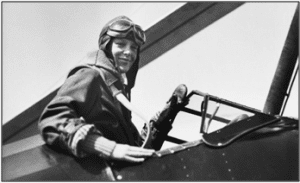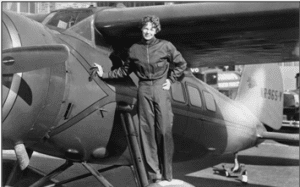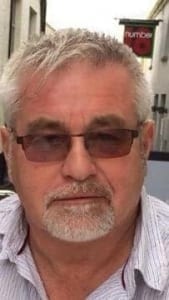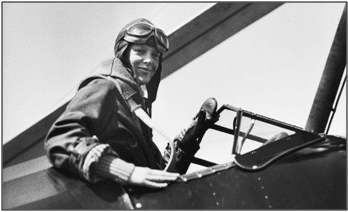A Flight Into Welsh History
By Philip Thomas
Amelia Earhart
On Monday the 18th of June, I was interviewed by a ‘Good Morning Wales’ presenter on BBC Radio Wales because it was the ninetieth anniversary of Amelia Earhart’s transatlantic flight in a Fokker F.VII aircraft named ‘Friendship’ in 1927. What always surprises me is the misconception by many that by landing at Bury Port Harbour, she had become the first woman to fly solo across the Atlantic. Nothing could be further from the truth but before I explain why this is completely incorrect, let me first tell you a little about her remarkable life.

Nicknamed ‘Millie’, Amelia Mary Earhart was born in Atchison, Kansas on July 24, 1897 and despite being raised in a middle class society, her childhood was not a happy one. Both she and Grace Muriel her younger sister, would often stay with their grandparents to escape the terrible feuding between her alcoholic father Edwin and mother ‘Amy’. Quite the tom boy in her youth, Amelia grew up to become an American beauty and the greatest female aviation pioneer of all time.
She saw her first plane at the age of ten and whilst serving as a nurse with the Red Cross at Spadina Military Hospital in Toronto, she almost died from Spanish Flu. In December 1920 her life completely changed when a racing pilot by the name of Frank Hawks took her on her first flight at Long Beach in Southern California.
Amelia was a highly independent person who actively challenged the social limits placed on American women during the early 1900s and she became a staunch supporter of Equal Rights. She crossed several barriers, one of which was to become a female pilot and was instructed by Anita Snook who taught flying at Kinner Field near Long Beach. Over the years Amelia became a household name and co-founded the ‘Ninety Nines’, an American female pilot association.
Now I will correct the common misconception that by landing at Bury Port on18 July, 1928 Amelia Earhart became the first woman to fly solo across the Atlantic. When ‘Friendship’ landed in West Wales that day, she became the first woman to fly ‘as a passenger’ on a transatlantic flight because the actual pilot was Whilmer Stultz and his co-pilot was Louis Gordon.
Earhart herself did not fly the aircraft at any point during the 20 hours and 40 minutes it took to complete the crossing from Trepassey Harbour in Newfoundland. As they approached Tenby from the west and with low fuel and the sea condition changing for the worse, the aircraft eventually landed at Pwll from where it was towed a short distance to Bury Port where ‘Friendship’ was secured to a wooden buoy which, is still secured to the harbour to this day. After an excited reception at Bury Port the crew were taken to the Ashburnham Hotel where Earhart told reporters…. “Stultz did all the flying – maybe I’ll do it on my own next time.” Nine years later, that is what she did.
On 20 May, 1932 and after marrying the publisher/publicist George Putnam in 1931, Amelia Earhart flew from Harbour Grace on the east coast of Canada and landed 15 hours later at Culmore in Northern Ireland to become the first female aviator to complete a solo transatlantic flight. Awarded the Distinguished Flying Cross for her achievement, the US also printed a postage stamp in her honour and she was made Vice President of National Airways. Always dressed in men’s clothing, she kept her blonde hair short and created the clothing company ‘Amelia Earhart Fashions’. During her flying career she broke many records and became the first American Air Race pilot.

Her second attempt to fly the 29,000 miles around the world in 1937 ended in disaster when the Lockheed Electra aircraft she was flying with fellow crew member Fred Noonan, suddenly disappeared after having completed 22,000 miles. Navigational problems were attributed to the cause of the tragedy and neither Earhart of Noonan’s bodies were found. On 5 January, 1939 Amelia was pronounced ‘Dead in Absentia’, two years after her plane disappeared.
Although an American, Amelia Earhart placed Wales on the map of aviation history.

Writer – Historian columnist/author for The West Wales Chronicle Philip Thomas. Please keep an eye out for this talented writer’s regular column!
Help keep news FREE for our readers
Supporting your local community newspaper/online news outlet is crucial now more than ever. If you believe in independent journalism, then consider making a valuable contribution by making a one-time or monthly donation. We operate in rural areas where providing unbiased news can be challenging. Read More About Supporting The West Wales Chronicle




















